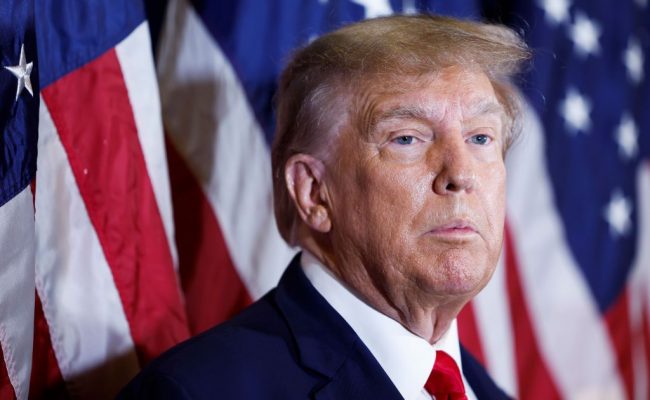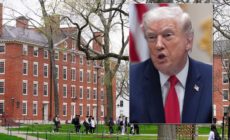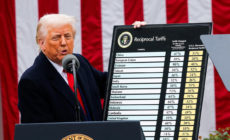Trump unable to get $464m bond in New York fraud case – Lawyers
- Posted on
- Comment

Donald Trump cannot find a private company to guarantee the $464m (£365m) he has been ordered to pay in a New York civil fraud case.
The former president must either pay the full amount in cash or secure a bond in order to continue his appeal.
Mr Trump said that securing a bond of that size was “practically impossible”.
He faces the prospect of some of his real estate assets being liquidated unless he pays up.
For a fee, a bonding company would guarantee the full amount to the New York court.
They would then have to pay it if Mr Trump loses his appeal and cannot do so himself.
In his statement, Mr Trump said that the bond he was asked to pay would be “impossible for any company, including one as successful as mine”.
“The bonding companies have never heard of such a bond, of this size, before,” he said.
Mr Trump’s team spent “countless hours negotiating with one of the largest insurance companies in the world”, his lawyers wrote in a court filing.
But they concluded that “very few bonding companies will consider a bond of anything approaching that magnitude”.
The lawyers said they had approached 30 companies without success.
Mr Trump’s two eldest sons must also pay millions of dollars in the case.
Along with ordering Mr Trump to pay the penalty, New York Judge Arthur Engoron banned him from running any businesses in the state for three years after he found the former president falsely inflated assets to secure better loan deals.
A judge paused Mr Trump’s business ban last month, but denied his bid to provide a smaller bond amount, $100m, to cover the fine.
In the latest filing, the former president’s lawyers included an affidavit from a president of a private insurance firm, who said that “simply put, a bond of this size is rarely, if ever, seen”.
“In the unusual circumstance that a bond of this size is issued, it is provided to the largest public companies in the world, not to individuals or privately held businesses,” the lawyers also said.
Mr Trump’s unprecedented legal situation makes it difficult to predict next steps, said former federal prosecutor Diana Florence, who also said that penalties on this scale are usually levied against large companies.
His legal team has been playing a delay game as he appeals the verdict, she said, but now “he might be out of rope”.
“He’s facing the very real possibility that the AG will begin to liquidate [his assets], and he’s really dependent on whether a court is willing to give him more time,” Ms Florence said.
New York’s attorney general has vowed to seize Mr Trump’s assets if he does not pay the fraud judgement.
Interest on the penalty is accruing by at least $112,000 per day until he pays.
Mr Trump’s lawyers said bond companies would not accept “hard assets such as real estate as collateral” for the bond, but only cash or “cash equivalents”, such as investments that can be quickly liquidated.
According to a Forbes estimate, Mr Trump is worth about $2.6bn. He testified last year that he had $400m in liquid assets.
The $464m judgement is not his only expense. He was ordered to pay $83m in January after losing a defamation case to E Jean Carroll, a woman he was found to have sexually abused. He has already posted a bond in that case.
Mr Trump had another legal setback on Monday in one of four criminal cases he faces.
A New York judge denied the former president’s bid to block two key witness testimonies in the case where he is accused of falsifying business records to hide a hush money payment.
Judge Juan Merchan said Michael Cohen, Mr Trump’s former lawyer, and Stormy Daniels, an adult film star, may give evidence in the trial, which could begin as soon as April.
-BBC










 (Selorm) |
(Selorm) |  (Nana Kwesi)
(Nana Kwesi)